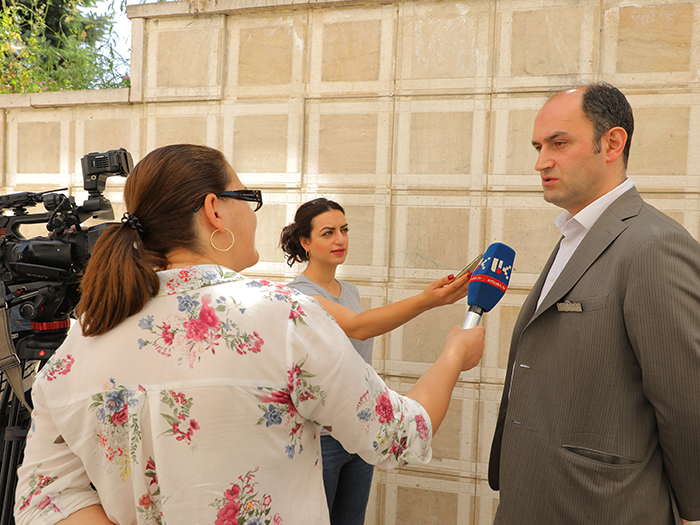On 15 June in Vallex Garden Hotel will take place a business summit held by one of the solar leaders in Armenia Shtigen Energy Systems. Below is the interview of Shtigen’s founder and CEO Hayk Shekyan to Artsakhpress agency.
AP: Mr. Shekyan, what’s the aim of the summit? Who and why is going to take part in it?
HS: The aim is to support the intensive development of solar energy in Artsakh by taking together al the interested parties and decision makers like officials, businessmen, reps of grid system and financial field.The solar energy development regulation in Artsakh was adopted recently and the people need to be informed better. There are both overrated expectations and groundless skepticism. We need to fix that and develop an adequate approach. It’s very important to show the economical benefit of solar investments and keep the people from making mistakes on real examples. We are going to share our many-year experience on real examples with businessmen involved in hotels, restaurants, fish farms, poultry farms, gas stations, malls, etc…
AP: Shtigen, founded by you, is already 8 years on the solar market. Why did you decide to come to Artsakh now?
HS: We aren’t newbies in Artsakh. Our activity in Artsakh started way ago. We were talking to the leaders asking to adopt the regulations as soon as possible. We have projects realized in Artsakh but we were limited to the private sector and charity projects because of the lack of regulation and absence of profitable financial offers. The adoption of solar energy field regulation and the financing offer together with our finance partner change the situation in Artsakh’s solar energy field which we are going to develop.
AP: Electricity tariffs in Artsakh are lower than in Armenia. Won’t that limit your projects in Artsakh?
HS: It would be better if the electricity tariffs were unified. In fact electricity in Artsakh is more expensive. In the 220V grid 1kWh in Artsakh costs 49/44 AMD (day/night) while in Armenia the tariff is 45/35 AMD. The thing is that the electricity is subsidized and people in Artsakh pay 25 AMD. It slows down the penetration of PV energy in private market but solar water heaters are well-demanded. Their payback is around 3-4 years with a 20-year lifetime. I need to mention that the subsidized tariff means that the 24 AMD/kWh is payed from country’s budget so it’s payed by the taxpayer. Each solar station installed by us reduces those expenses. I think the situation must be reviewed in the context of economical and social policy efficiency. It would be better to start subsidizing financing of solar stations using the 1-2 year budget of electricity subsidizing or form an operational fund for financing strategic projects. We need to give people an opportunity to install solar systems at a price as lower as possible without paying by subsidized tariffs. It will result in taxpayers’ payments’ liberation for use in military, economical and other important fields. The situation is different for business where the electricity is more expensive and solar systems are even more beneficial.
AP: When driving from Stepanakert to Yerevan lots of solar devices with Shtigen logo can be seen on the roofs of the houses around the road. The quantity makes me suggest that they are affordable. Can an average citizen of Artsakh afford them?
HS: We call that villages “Solar communities”. More than the half of the population of those villages uses solar energy. Shtigen solar water heaters seen there or Shtigens as the people calls them are very affordable and cheaper than a good smartphone. Unlike a smartphone those solar devices allow annual savings up to 100 000 AMD and bring the quality of life to a new level by providing hot water for household needs all day long which is not often available in Armenian countryside. People can buy them by paying the whole price or taking a credit with monthly payments less than the saving made. After payments done the device will continue to provide hot water for another 10-15 years. I’m sure the same picture we will see in Artsakh – in Stepanakert, Martakert, Hadrut, etc…
